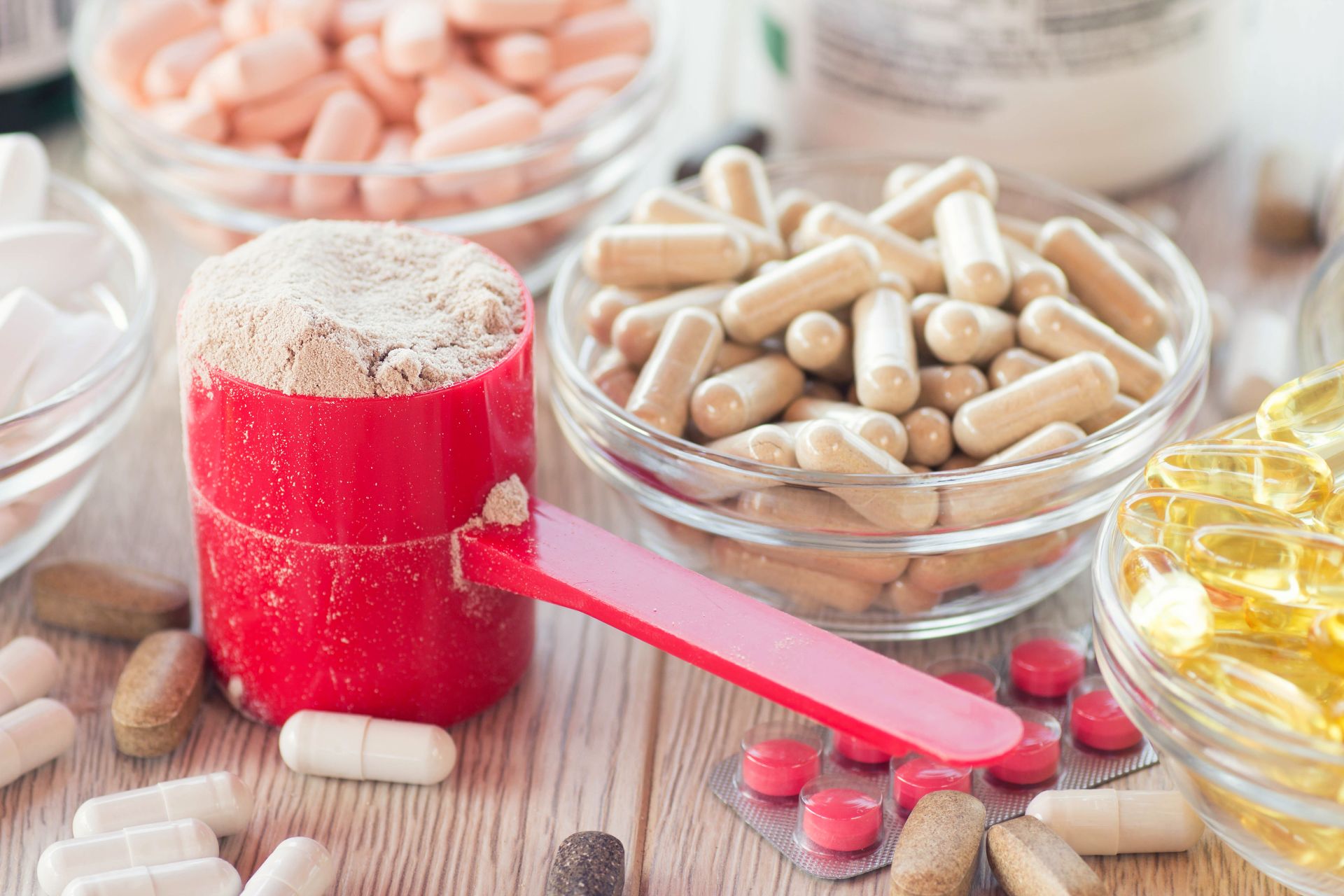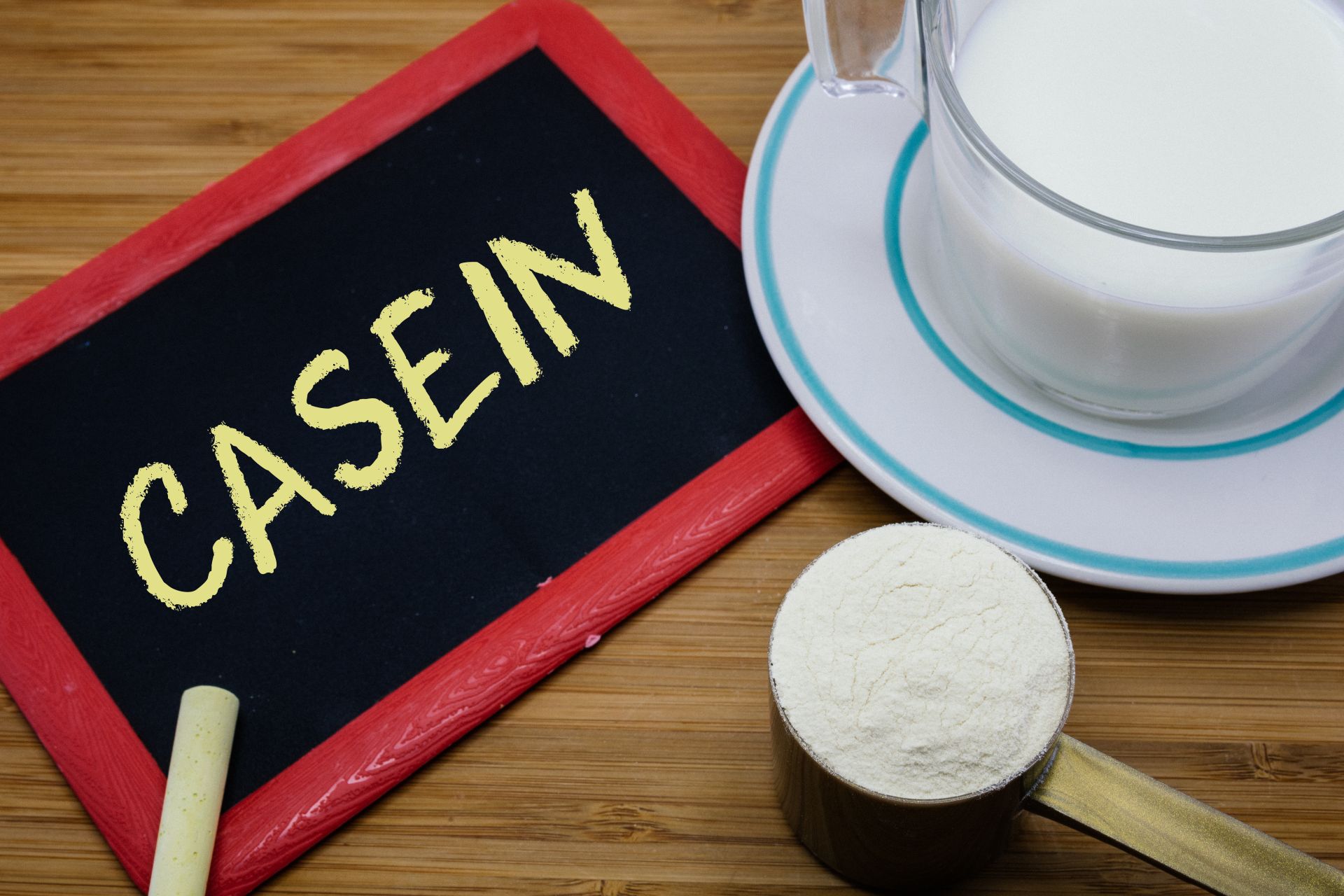Best supplements for recovery

Ensuring proper post-workout recovery plays an extremely important role in competitive and amateur sports. In addition to attention to diet, hydration, sleep and rest, and the use of massage, cryotherapy, cold showers and other methods to improve skeletal muscle recovery, there are at least a few proven supplements for recovery. So let's find out which muscle recovery supplements can actually help sports people improve their athletic performance.
Protein conditioner
It goes without saying that the primary supplement for muscle recovery is a good quality protein supplement (such as WPI - Whey Protein Isolate, or whey protein isolate), which will work perfectly as an addition to the first meal after weight training. Optimal protein intake in the diet of a sports person is one of the most important factors favorably influencing the improvement and acceleration of post-workout recovery. Protein is a macronutrient that is responsible for skeletal muscle remodeling, repairing damaged tissues , structural changes in tendons and bones, reducing symptoms of exercise-induced muscle damage, and increasing strength and lean body mass. It is now well known that consuming an adequate amount of protein (30-40 g) that provides all the essential amino acids (including leucine) after weight training stimulates muscle protein synthesis, speeds up the post-workout recovery process, and can promote increased muscle mass and strength.
Creatine
The second recovery supplement that is useful for virtually every person attending the gym to increase strength and muscle mass is creatine. Creatine supplementation enables rapid resynthesis of ATP (the compound that is the primary source of energy during muscle contraction), which translates into improved athletic performance, especially in short-term, high-intensity exercise, as well as improved adaptation of the body to increased exercise loads. The use of creatine not only has a beneficial effect on the growth of muscle mass, power and strength, but also improves post-workout regeneration and exercise tolerance, increases the synthesis of glycogen (skeletal muscle reserve material), neutralizes reactive oxygen species, reduces inflammation, prevents sports injuries and improves the rehabilitation process. Creatine is most often recommended to be taken in a daily dose of 3 to 5 g per day for a minimum of 4 weeks.
EPA and DHA acids
The third recommended supplement for muscle recovery is long-chain omega-3 polyunsaturated fatty acids, especially EPA and DHA. Omega-3 fatty acids exhibit anti-inflammatory properties and therefore it is indicated that they may play an important role in skeletal muscle recovery after intense exercise. Dietary supplementation with EPA and DHA fatty acids may contribute to reducing delayed skeletal muscle soreness (known as DOMS), alleviating oxidative stress and lowering blood levels of inflammatory markers. In addition, EPA and DHA intake may mitigate traumatic brain injury, which is most commonly experienced by athletes in contact sports (e.g.: soccer players, boxers, rugby players, hockey players), and have beneficial effects on mood and cognitive function (e.g. reaction time, working and episodic memory). There is also some indication that dietary supplementation with EPA and DHA acids may alleviate pain and inflammation and speed up the rehabilitation process after injury, which may be due to the production of mediators that quench the inflammatory response (e.g., resolvins). EPA and DHA acids are undoubtedly one of the essential supplements for recovery, and should be taken regularly by recreational and competitive athletes at a daily dose of about 2 g.
Vitamin D
Another recovery supplement discussed in this article is the well-known vitamin D. It is a fat-soluble vitamin whose adequate blood levels help improve post-workout recovery, ensure proper functioning of the immune system and prevent the onset of musculoskeletal ailments. Studies have shown that people with optimal blood levels of vitamin D (30 - 50 ng/ml) have a reduced risk of developing upper respiratory tract infections, fewer overload injuries and fractures, reduced inflammation and improved neuromuscular function and training adaptation, as well as improved rehabilitation outcomes. Vitamin D supplementation in people with vitamin D deficiency may even contribute to increased muscle strength and improved sports performance.
Antioxidants
The last group of bioactive substances included in the narrow group of supplements for muscle recovery are antioxidants, such as curcumin, quercetin and other polyphenols. Polyphenols exhibit antioxidant and anti-inflammatory effects, thus alleviating post-workout skeletal muscle damage and delayed muscle soreness, and markedly accelerating post-workout recovery. It is usually recommended to use curcumin at a dose of about 5 grams per day, quercetin at a dose of 1 gram per day, and Montmorency tart cherry juice at a dose of 250-350 ml (30 ml in the case of concentrate) twice a day for 4-5 days before sports competitions and 2-3 days after the completion of the competition as effective supplements for recovery and sleep.
Sources:
- Heaton LE, Davis JK, Rawson ES, et al: Selected In-Season Nutritional Strategies to Enhance Recovery for Team Sport Athletes: A Practical Overview. Sports Med. 2017 Nov;47(11):2201-2218.
- Rawson ES, Miles MP, Larson-Meyer DE: Dietary Supplements for Health, Adaptation, and Recovery in Athletes. Int J Sport Nutr Exerc Metab. 2018 Mar 1;28(2):188-199.
- Maughan RJ, Burke LM, Dvorak J, et al: IOC consensus statement: dietary supplements and the high-performance athlete. Br J Sports Med. 2018 Apr;52(7):439-455.
- Kim J, Kim EK.: Nutritional Strategies to Optimize Performance and Recovery in Rowing Athletes. Nutrients. 2020 Jun 5;12(6):1685.
- Tanabe Y, Fujii N, Suzuki K.: Dietary Supplementation for Attenuating Exercise-Induced Muscle Damage and Delayed-Onset Muscle Soreness in Humans. Nutrients. 2021 Dec 24;14(1):70.
- Gamonales JM, Rojas-Valverde D, Muñoz-Jiménez J, et al: Effectiveness of Nitrate Intake on Recovery from Exercise-Related Fatigue: A Systematic Review. Int J Environ Res Public Health. 2022 Sep 23;19(19):12021.
 ⮜ Previous article
⮜ Previous article
Casein as a good source of protein
 Next article ⮞
Next article ⮞